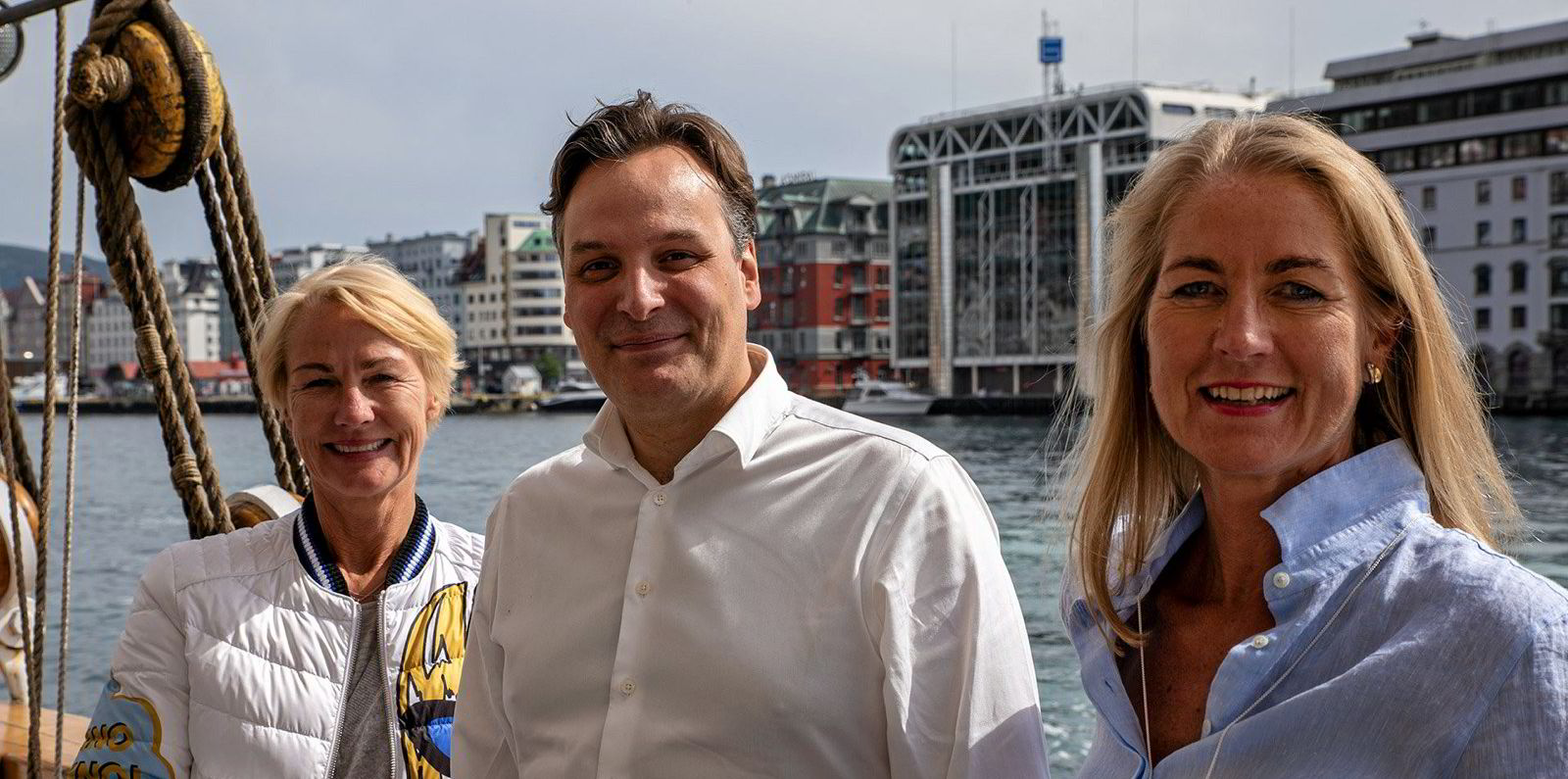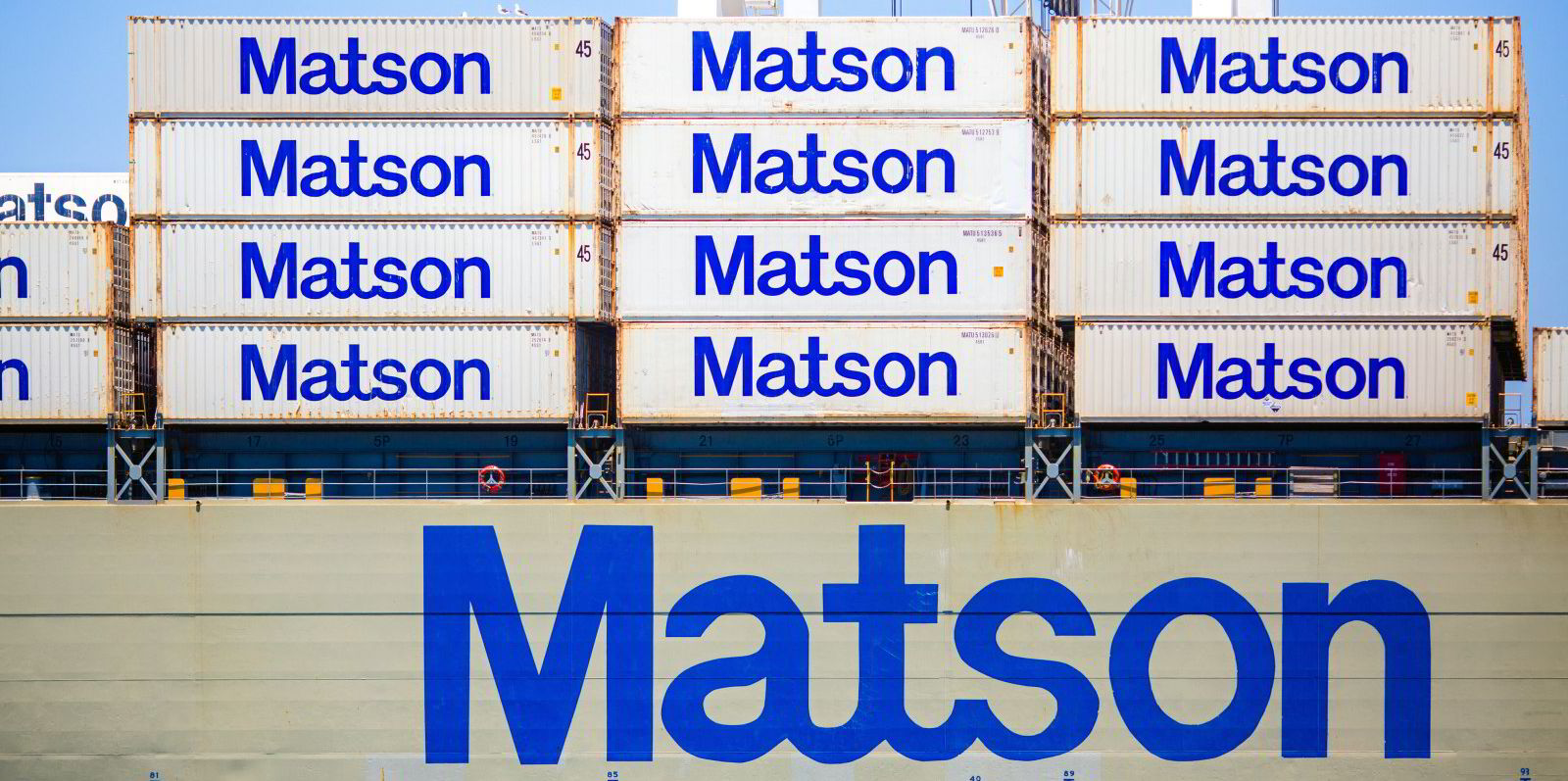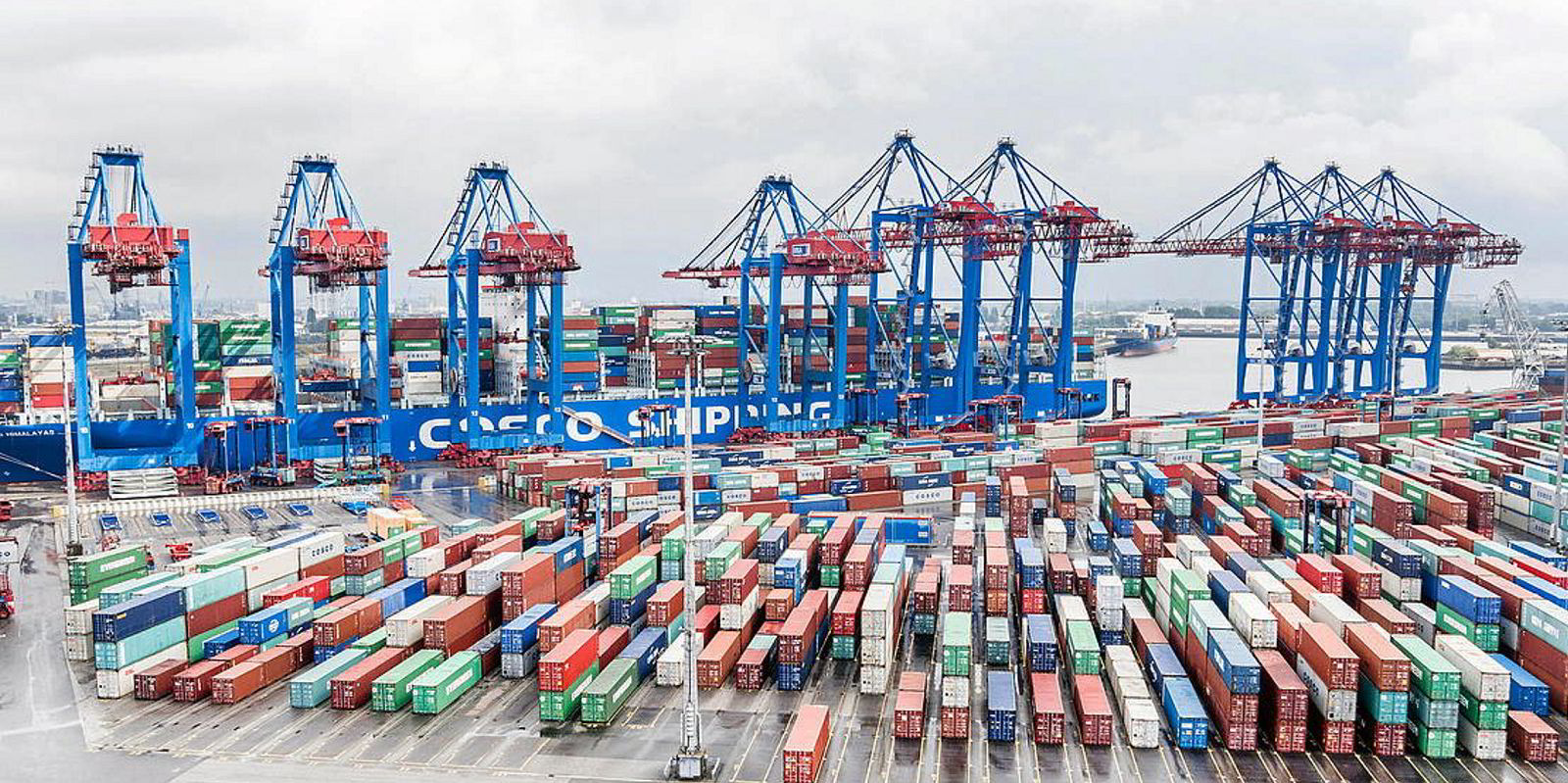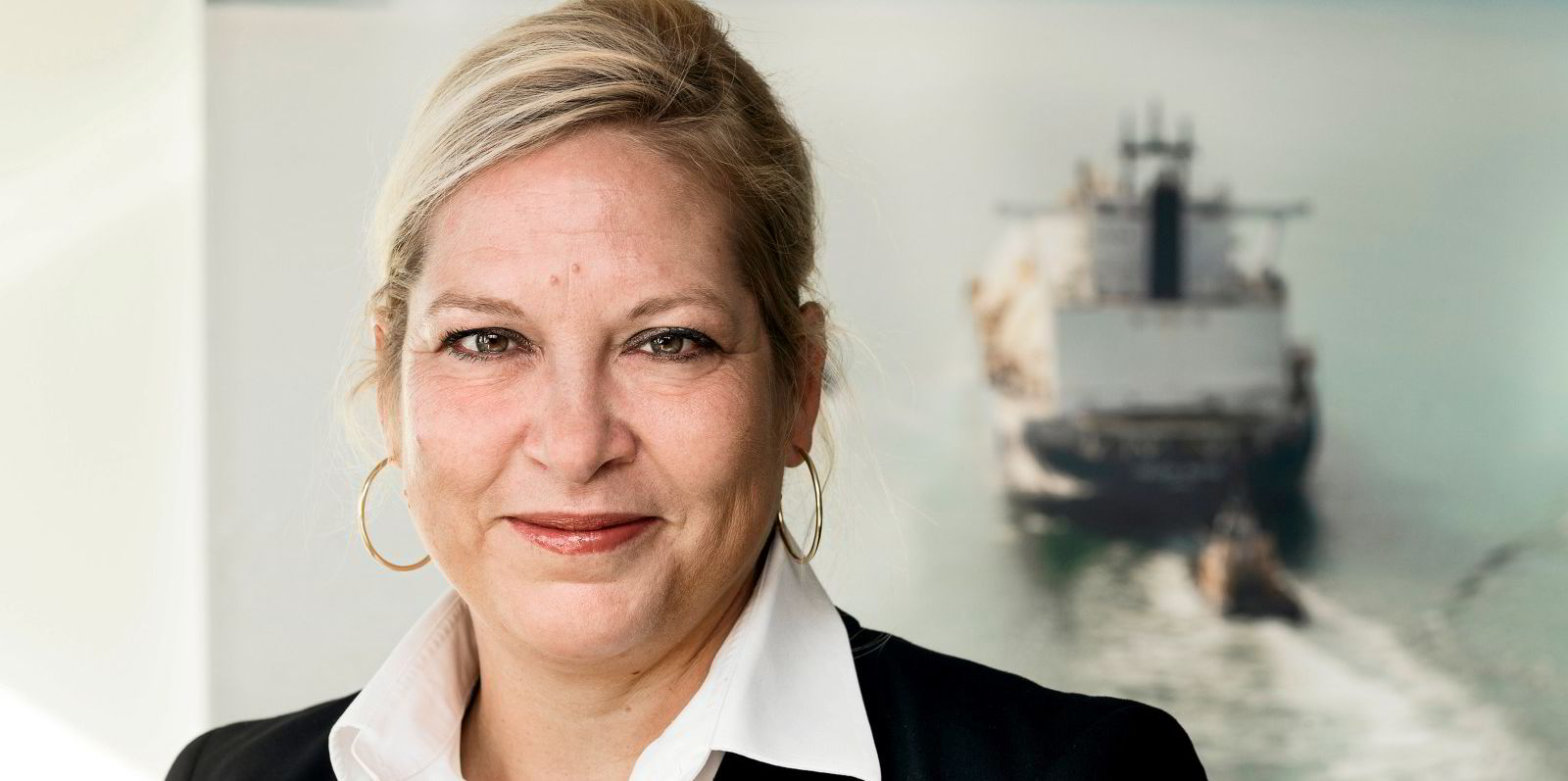Containership owners are raking in so much money in hot markets that some may not need financing for newbuilding orders at all.
Olga Petrovic, head of the asset finance practice and co-head of the transportation sector group at law firm Linklaters, told TradeWinds that certain boxship clients are enjoying their most profitable run for 15 years.
The maritime finance specialist said: "So in many cases they are refinancing facilities, they're repaying loans, and with newbuildings they're considering whether to finance the acquisition of the new vessels or to simply pay in cash — which we haven't really seen in shipping since before the financial crisis."
Some lines are also deploying their cash into major capital investments.
These include looking at port terminals or buying other shipping companies.
Recent examples include CMA CGM agreeing a $154m deal to run a terminal at Khalifa in the United Arab Emirates with Abu Dhabi Ports for 35 years, as well as Hapag-Lloyd acquiring a 30% stake in Container Terminal Wilhelmshaven and 50% of the shares of Rail Terminal Wilhelmshaven at JadeWeserPort.
CMA CGM has also invested in Brittany Ferries, while rival liner giant Mediterranean Shipping Co is taking over Brazilian cabotage operator Log-In Logistica and Samskip has bought Lithuanian short-sea line Sea Connect.
"It's very much a borrowers' market at the moment for the container segment of shipping," Petrovic said.
Big names on the client list
The experienced lawyer has seen it all in a career spent working with shipping players such as Hapag-Lloyd, CSAV and CGG, as well as lender Credit Agricole on the Toisa Chapter 11 process, with banks on the restructuring of Israeli line Zim, and with US fund Centerbridge Partners as it moved into container shipping in Europe.
And in a cyclical business, the Linklaters partner said it is offshore shipping that has been suffering of late.
The oil and gas shipping support sector "still has some stressed companies, some of which are currently in restructuring and some which may be restructuring candidates in the future," the lawyer said.
Petrovic also mentioned two major trends that will keep her firm busy: the energy transition and the move away from Libor in loans.
"We've worked on financings of a number of vessels that are either LNG-powered or dual-fuel from day one or are converted to LNG or dual-fuel," the lawyer said.
"Shipping naturally lends itself to green finance — where you are financing a project or an asset which itself has environmental qualities."
Norwegian pioneers

In February, Norwegian bulker owner Grieg Maritime Group was possibly the first shipping company to use the new secured overnight financing rate (SOFR) for a vessel loan.
SOFR is a benchmark interest rate for US-dollar loans that is based on data from observable transactions, rather than an estimated borrowing rate such as Libor.
Libor will be replaced for good on 30 June 2023, with the phase-out beginning after the end of this year.
"This is an area where the shipping banks have some work to do, primarily because shipping is mainly a dollar-denominated market and Libor for dollars will continue to be published until 2023," Petrovic said.
"Some players in the market don't have the regulator pressure that UK and European-regulated banks do to switch from Libor to the new risk-free rates just yet."
Using the new risk-free rates requires changes to the entire interest rate mechanics of a loan, the lawyer explained.
Dry subject but not one to be ignored
"It's a really dry topic, but a significant shift in lending practice pretty much for everyone who does floating rate-based finance," Petrovic said.
Shipowners are in many cases looking to defer or "kick the can" on this issue, which the lawyer warned can be costly and time consuming.
"Such deferral can be more or less specific, for example including a specific time for commencing the rate-conversion exercise or pre-agreeing some of the conversion mechanics," she said.
Linklaters is already implementing rate-conversion mechanics in certain new financings for clients.
And Petrovic warned that the issue will not go away. "It's coming," she added.







